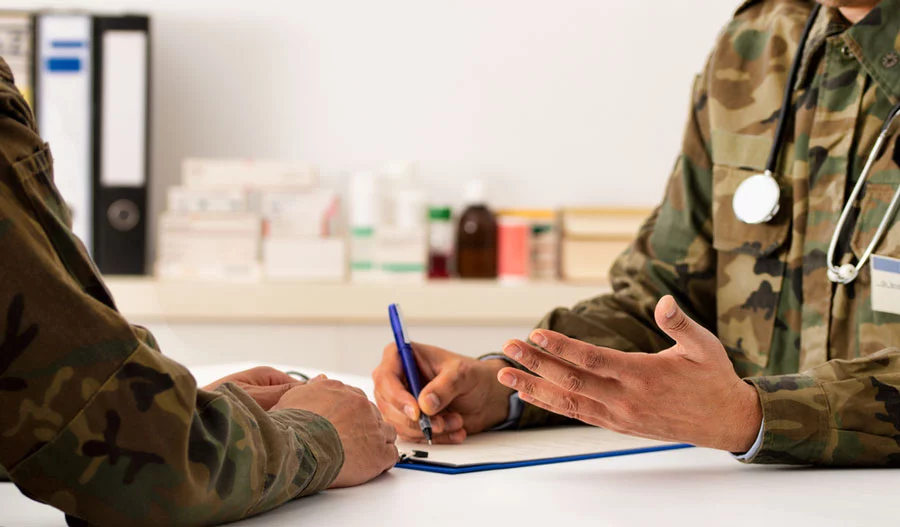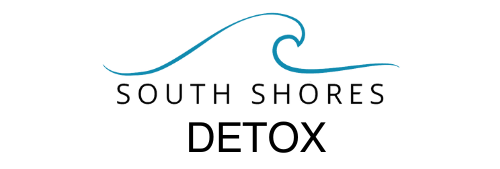Addiction Treatment for Active Duty Military
When speaking of members of our military, it’s difficult to place them in the same category regarding controversial topics like drug abuse, mental illness, and substance use disorder. Often times it’s far too easy to look at service members as individuals who transcend the hangups of addiction, especially when it comes to our rough and ready Marine Corps.
And while Marines are indeed held to a higher standard in many regards, it’s important to remember that they’re also human like everyone else. Human challenges require human solutions, regardless of the demographic or designation you fall under. This is where our Camp Pendleton drug rehab services come into the picture.
You might already know that anyone can be at risk of developing a substance misuse disorder – especially within the confines of on-base living, deployment, or any other active-duty military status. And while cases of veterans dealing with substance abuse as a result of PTSD and other challenges are becoming widespread knowledge, it’s important that we don’t disqualify current active duty members needing help too.
If you’re on active duty in Camp Pendleton, CA, or a family member of a Marine and are struggling with substance abuse, it’s important you have options you can count on. Keep reading to learn more about South Shores Detox and Recovery, and how we proudly serve.
Substance Abuse and Military Treatment Options In Camp Pendleton, CA
In the past, writing off a service member and serving them a dishonorable discharge was the go-to move for any active duty soldier even suspected of occasional use of narcotics. However, times have changed drastically, and this is no longer a humane course of action with regard to the tremendous mental pressure placed on an active-duty service member at any given moment.
Camp Pendleton, CA is home to one of the largest military installations in the United States. Unfortunately, it’s also situated in an area known for explosive drug use and some of the heaviest trafficked areas for cartel smugglers. Combine that with the widely accepted drug and counter-culture of California, coupled with the demand for intense mental endurance, and you’ve got a well-worn pathway to substance abuse for those stationed at Camp Pendleton.
First, let’s take a look at why substance abuse issues like opioid addiction, alcoholism, and other problems can easily wreak havoc on military families and those close to anyone from a first-year cadet to a decorated veteran of the Corps.
Driving Factors for Camp Pendleton, CA Substance Misuse

In this section, we’ll dive into some of the driving factors that might require you to seek substance abuse treatment in Camp Pendleton, CA. For Marines as well as their loved ones, these are some of the challenges and temptations that can lead to addictive behaviors.
The Daily Demands Placed on Marines and Their Families
PTSD, depression, and brain injuries like PCS (post-concussive syndrome) are just a sampling of the mental wounds inflicted on members of military duty and conflict that may lead to increased substance abuse. Overall, military personnel has a rate of depression that’s five times higher than that of the normal population.
Untreated mental health problems and emotional anguish might lead some people to turn to substance abuse as a negative coping mechanism. Even more astounding, nearly 20 percent of military members have some form of mental disorder. In addition, the risk of a presence of a mental health disorder in someone who is on active duty is nearly 20 times greater than that of a civilian.
Some people with post-traumatic stress disorder (PTSD) or another mental health condition find that substance use helps them cope with their symptoms, but with time, they may find that it makes their condition worse and that they develop a co-occurring substance use disorder.
The Military and Hard Drinking as a Rite of Passage
Unfortunately, for younger service members, drinking is a rite of passage after donning the uniform. Many of the newly recruited active duty service members (and even the veterans) gravitate toward alcoholism.
For some, this is an affliction that runs in the family. However, for many service members, there were no predisposed conditions or situations of alcohol abuse before entering the ranks of the armed forces. However, as these members begin to bond and become exposed to an “extreme” everything and full-speed ahead attitude, everything – even drinking, is done to the best of their abilities.
A large portion of this can be pinned on the fact that during active duty spent on a base, the lack of recreation and contact with family leads to depression. This goes largely unnoticed by the user, although it’s present under the surface as a major contributor to alcohol abuse.
In extreme cases, some service members experienced sexual abuse while on base. Although these cases are few and far between, this can be a huge bridge to substance abuse and alcoholism. Reported cases of women who experienced sexual abuse are far higher than men – although it’s not completely non-existent for the male population, even among Marines.
Opioid Medications Used to Treat Injuries

Another route to substance abuse for past and present service members is through the abuse of opioid medication. Many of those stationed in Camp Pendleton and other bases around the country are exposed to intense physical training on base and certainly have been pushed to their physical limits during times of deployment.
Significant, life-changing injuries are commonplace, and unfortunately, the prime remedy for many individuals becomes painkillers. After the VA hospital stops prescribing the medication, generally the next step is obtaining them on the streets.
Sadly, San Diego, which is the main population center for Camp Pendleton, is a hotbed for illegal opioids. This includes painkillers, heroin, and fentanyl. Usually, drug rehab and treatment become the primary option to reduce risk factors involving long-term addiction.
What to Do When You Require a Substance Abuse Treatment Center for Camp Pendleton
If you or someone you know is stationed at Camp Pendleton, CA, and experiencing problems with substance abuse, it’s important that you reach out to receive the help you need.
Believe it or not, a rehab convenient to Camp Pendleton isn’t as far-fetched as you think. South Shores Detox and Recovery is Joint Commission accredited and is a TRICARE in-network facility that has helped many Marines and their family members.
Our facilities are less than a half-hour drive up I-5 from Camp Pendleton North, and just a few minutes more from Camp Pendleton South. It makes everything more convenient and the process of getting help easier, when treatment is so close at hand.
Be Honest With Family Members and Superiors
When you’re in the military, there’s no hiding anything from superior officers and even your peers. The first step you should take is disclosing your situation with your family. They should be a major support pillar during your struggles with substance abuse and can help support you as you get needed care with us.
Because your daily activities are tracked and you can’t just disappear from the base, it’s important that you’re forthcoming with information regarding your situation with any officers or higher-ups.
Going against the grain and attempting to undermine or avoid these individuals displays an inherent display of guilt, and many times, disrespect.
Be Realistic About Substance Abuse: Whether for Yourself or a Loved One

What drug are you (or your loved one) abusing and how long has this been an ongoing issue? It will be much easier to find the appropriate treatment centers in Camp Pendleton, or conveniently located down the road if you are open and transparent about your needs.
Gather The Necessary Information Regarding Camp Pendleton Treatment
What does your health insurance plan look like? Your military insurance will likely cover a portion of your treatment. However, it’s never a bad idea to have supplemental health insurance like TRICARE for inpatient treatment coverage.
These organizations cover treatment and therapy sessions that your primary military insurance will not. This will end up saving you a significant amount of money out-of-pocket.
If you’re unable to obtain this form of insurance, it’s possible that you might find resources through the VA hospital in Camp Pendleton. In addition, many treatment facilities, including South Shores, offer a sliding fee scale to help mitigate the additional cost of services when you have to pay out of pocket or with self-pay.
Quality Rehab for Camp Pendleton Is Closer Than You Think
At South Shores Detox and Recovery, we specialize in assisting those in active duty status at Camp Pendleton, as well as their families and Marine Corps veterans. On a good day with little traffic, we’re less than a 30-minute drive from the base.
In addition, our proximity to Camp Pendleton has allowed us to create a track record and history of working with those in these types of delicate situations. Our staff is well-versed in treating disorders like PTSD and depression, and our dual diagnosis therapy is second to none.
We’ll help you sort through the specifics of your military insurance and ensure you pay as little out of pocket as possible. For more information on how we can help you get back on track in your personal life and military career, contact a member of our Admissions team today.
All calls are completely confidential and without obligation, so reach out and get options now!

